Dogs are known for their quirky behaviors, and one puzzling habit that often leaves pet owners scratching their heads is why dogs nibble on blankets. This peculiar behavior can range from gentle nibbling to full-blown chewing, causing some owners to worry about their furry friend’s well-being or the integrity of their cozy blankets. In this article, we will explore the reasons behind this behavior, shedding light on the various factors that may contribute to dogs’ penchant for nibbling on blankets. Understanding this behavior can help owners provide appropriate care and address any concerns they may have for their beloved canine companions. So, let’s delve into the fascinating world of why dogs nibble on blankets.
Differentiating Nibbling from Destructive Chewing
Differentiating between nibbling and destructive chewing is essential when it comes to understanding why dogs nibble on blankets. Nibbling, in this context, refers to a gentle and repetitive biting or mouthing behavior that dogs exhibit towards blankets. This behavior can be seen as a way of exploring and interacting with their environment, similar to how puppies mouth objects during their teething phase. Nibbling on blankets may also serve as a soothing or comforting activity for dogs, especially when they are feeling anxious or stressed.
On the other hand, destructive chewing involves more aggressive and destructive behavior towards blankets, resulting in tearing, shredding, or swallowing pieces of fabric. This behavior is often motivated by boredom, separation anxiety, or a lack of appropriate chew toys and outlets for energy. Owners need to distinguish between these two behaviors to determine if their dog’s nibbling is harmless or if it requires intervention to prevent damage to the blankets or potential health risks for the dog.
Frequency and intensity of nibbling behavior
The frequency and intensity of a dog’s nibbling behavior can vary from one individual to another. Some dogs may engage in occasional nibbling, especially when they are settling down for a nap or trying to get comfortable. For them, nibbling on blankets becomes a part of their routine, much like how humans might fidget or adjust their pillows before falling asleep.
In contrast, some dogs exhibit more intense nibbling behaviors, often accompanied by kneading or pawing at the blankets. This behavior may be observed when dogs seek attention, express excitement, or simply relish in the fabric’s texture and scent. It’s important to note that while nibbling itself is usually harmless, excessive or obsessive nibbling can lead to wear and tear on the blankets or even potential digestive issues if the dog ingests fabric.
Also Read: Best Dog crate covers
Reasons for Nibbling on Blankets
Dogs are fascinating creatures with unique behaviors that sometimes leave us perplexed. One such behavior is their tendency to nibble on blankets. Whether it’s a gentle and occasional nibble or a more intense and persistent activity, many dogs seem to exhibit this peculiar habit. But why do dogs nibble on blankets? In this article, we will explore the various reasons behind this behavior, shedding light on the comfort, exploration, teething, and boredom factors that contribute to their blanket nibbling tendencies which is a self-soothing behavior. Understanding the motivations behind this behavior can help dog owners better interpret their furry friends’ actions and provide appropriate solutions or alternatives to engage their pets. So, let’s delve into the intriguing world of why dogs engage in this seemingly peculiar habit of nibbling on blankets.
- Comfort and soothing: Dogs often find blankets to be soft and comforting, similar to how humans find comfort in a warm and cozy blanket. Nibbling on the fabric can provide a soothing sensation for dogs, helping them relax and feel secure. This behavior is particularly common when dogs are settling in for sleep or seeking reassurance during times of stress or anxiety.
- Exploratory behavior: Dogs use their mouths as a way to explore and interact with their environment. Nibbling on blankets allows them to engage their senses as they investigate the texture, smell, and taste of the fabric. It’s their way of checking out their surroundings and satisfying their curiosity.
- Teething and oral stimulation: Just like human babies, puppies go through a teething phase where they experience discomfort and itching in their gums. Nibbling on blankets is a self-soothing behavior and can provide relief. it can also be done by massaging their gums and providing an outlet for their teething urges. It also helps them develop good oral hygiene habits and strengthen their jaw muscles.
- Boredom and lack of stimulation: Dogs are intelligent and active creatures that require mental exercise and physical stimulation. If dogs do not have enough physical and mental exercise, they may resort to behaviors like nibbling on blankets out of boredom. This behavior can be a way for them to entertain themselves and release excess energy.
Addressing the Behavior
A. Providing alternatives
One effective way to redirect your dog’s attention away from nibbling on blankets is to provide them with appropriate chew toys and bones. Dogs have an instinct natural instinct to chew, especially during their teething phase. By giving them toys designed specifically for chewing, you can help satisfy their need to gnaw and let them exhibit their self-soothing behavior. Look for durable toys that are made from safe materials and provide different options to keep your dog engaged and entertained.
As mentioned earlier, dogs may show the unwanted behavior of nibbling on blankets out of boredom or a lack of mental stimulation. To address this, it’s important to provide your dog with plenty of opportunities for exercise and play. Take them for regular walks, engage in interactive play sessions, and provide puzzle toys or treat-dispensing toys to keep their minds active. A tired and mentally stimulated dog is less likely to engage in destructive chewing behaviors.
If your dog has shown the compulsive behavior of nibbling on blankets, it’s essential to teach them an alternative behavior. One way to do this is by redirecting their attention to a more appropriate activity, such as playing with a toy or performing a trick for a reward.
Reward-based training is an effective method to redirect your dog’s attention away from nibbling on blankets. Whenever you catch them engaging in this behavior, gently remove the blanket and replace it with a chew toy or bone. When they show interest in the alternative item, praise and reward them with treats or verbal praise. Over time, your dog will learn that engaging with the chew toy or bone is more rewarding than nibbling on blankets, helping to break the habit. Additionally, diverting their attention to other activities, such as interactive play or training sessions, can further deter them from nibbling on blankets. By providing them with positive alternatives, we can help our furry friends find healthier ways to satisfy their chewing instincts.
Seeking Professional Help
If your dog’s nibbling on blankets persists despite your efforts to redirect their behavior, it may be beneficial to seek professional help. A veterinarian or animal behaviorist can assess this behavior in dogs and their specific needs and provide tailored guidance toward normal behavior and strategies to address the underlying cause of their chewing behavior. They may recommend behavior modification techniques, environmental enrichment, or even medication in severe cases. Consulting a professional can help ensure that your dog receives the necessary support and guidance to overcome their blanket-nibbling habit and lead a happier and healthier life.
In conclusion, dogs may nibble on blankets for various reasons, including teething, boredom, anxiety, or a desire for comfort. By understanding the underlying causes and providing appropriate alternatives, such as chew toys, mental and physical stimulation, and positive associations, we can help redirect their chewing behavior. However, if the behavior persists, it is advisable to seek professional help to address any underlying issues and provide the best outcome for our furry friends.
1. Consulting a Veterinarian or Animal Behaviorist
If your dog’s nibbling on blankets persists despite your efforts to redirect their behavior, it may be beneficial to seek professional help. A veterinarian or animal behaviorist can assess your dog’s specific needs and provide tailored guidance and strategies to address the underlying cause of their chewing behavior. They have the expertise to identify any underlying medical conditions or behavioral issues that may be contributing to this behavior.
A veterinarian will be able to conduct a thorough examination to rule out any dental issues, oral discomfort, or gastrointestinal problems that could be causing your dog to nibble on blankets. They can provide appropriate treatment or medication if necessary.
An animal behaviorist specializes in understanding animal behavior and can help identify any underlying emotional or psychological factors that may be driving your dog to nibble on blankets. They can develop a behavior modification plan tailored to your dog’s specific needs and guide positive reinforcement techniques.
Additionally, creating a calm and enriching environment for your dog can help alleviate anxiety. Provide them with a comfortable bed or crate where they can retreat during stressful situations. Use calming techniques such as aromatherapy or soothing music. Consider using training techniques, such as positive reinforcement, to help your dog learn to cope with stress and anxiety healthily.
Also Read: Nylabone Power Chew Alternative Braided Bully Stick Giant 1 count Pack of 2
2. Scent and Comfort- Dogs Nibble on Blankets
Dogs have a keen sense of smell and are attracted to scents that are familiar and comforting to them. Your scent may be particularly appealing to your dog, which is why they may choose to nibble on blankets that contain your scent. This behavior can provide them with a sense of comfort and security, similar to how a child may cling to their favorite blanket or stuffed animal.
3. Exploring Underlying Health Issues or Anxiety Disorders
Sometimes, dogs may nibble on blankets as a result of underlying health issues or anxiety disorders. Dental problems, such as gum inflammation or toothache, could cause discomfort, leading dogs to seek relief by chewing on soft materials like blankets. If you suspect dental issues, it’s important to take your dog to the veterinarian for a thorough examination.
Anxiety is another common reason why dogs may nibble on blankets. Dogs may exhibit anxiety due to various factors, including separation anxiety, changes in their environment, or fear of certain situations. Chewing on blankets can provide a form of comfort and help them cope with their anxiety. It’s essential to address the underlying anxiety by using positive reinforcement techniques, creating a safe and calm environment, and offering appropriate outlets for their energy through exercise and mental stimulation.
Overall, if your dog is constantly nibbling on blankets and it seems to be a persistent behavior, it’s best to consult with a veterinarian or animal behaviorist. They can help determine if there are any underlying health issues or anxiety disorders that need to be addressed. By understanding the root cause of the behavior, you can work towards finding the most suitable solution to ensure your dog’s well-being.
Final Words on Dogs Nibble on Blankets
In conclusion, there are several reasons why dogs may nibble on blankets. It could be due to teething and exploration during their puppy phase, a means of marking their territory or seeking attention, or even a way to cope with stress or anxiety. Additionally, dogs may be attracted to the familiar scent of their owner on the blanket, providing them with a sense of comfort and security. It’s important to consider any underlying health issues or anxiety disorders that may be causing this behavior and to consult with a veterinarian or animal behaviorist if the nibbling persists. By addressing the root cause, you can ensure your furry friend’s well-being and find the most suitable solution for their comfort and happiness.
Interesting Reads:


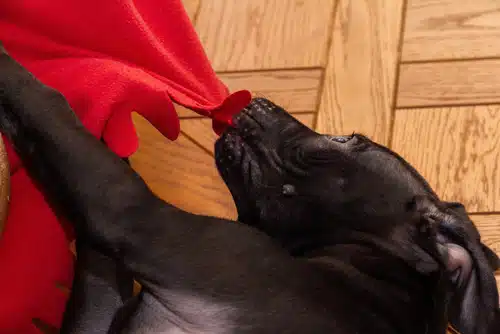


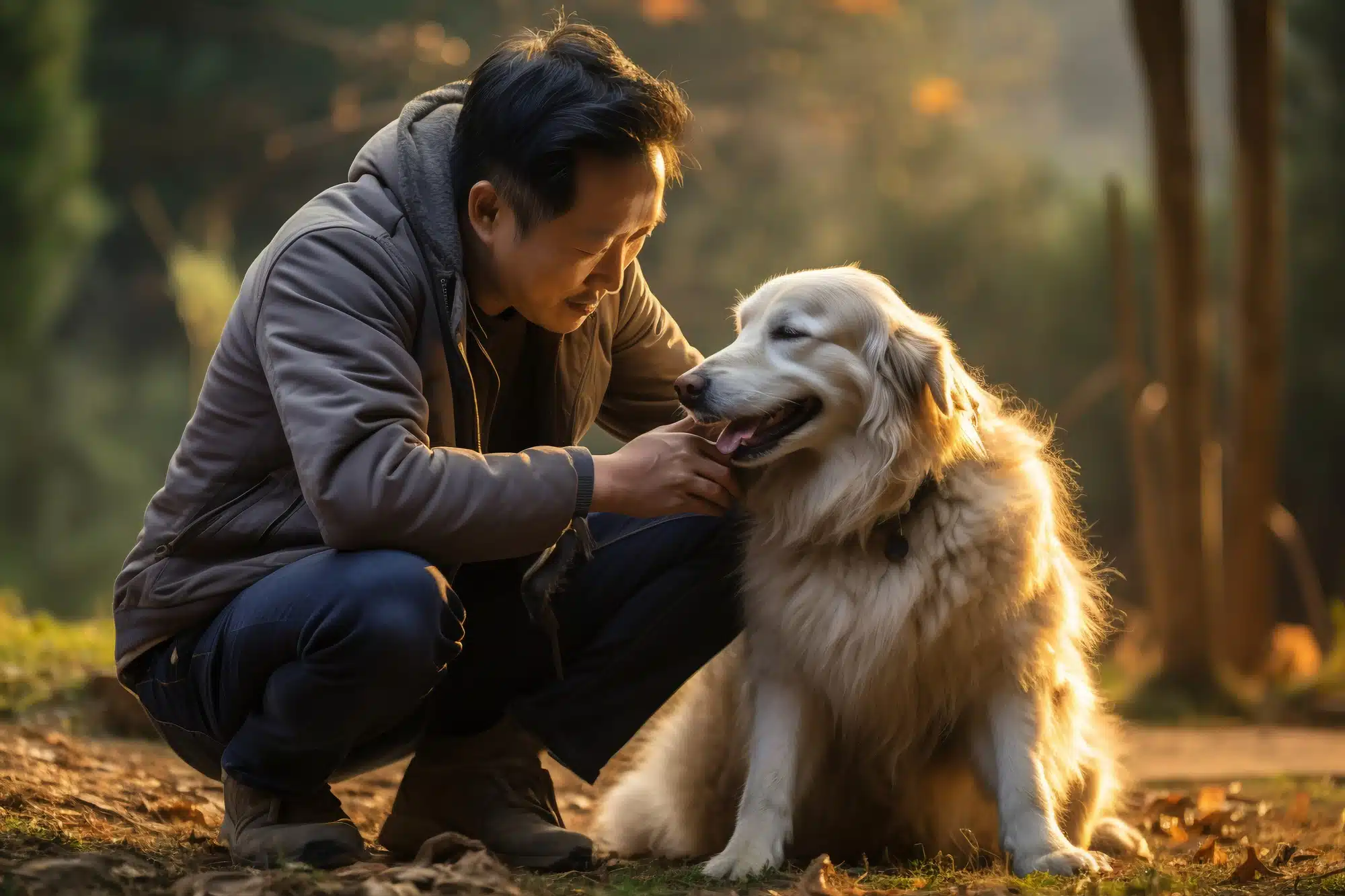
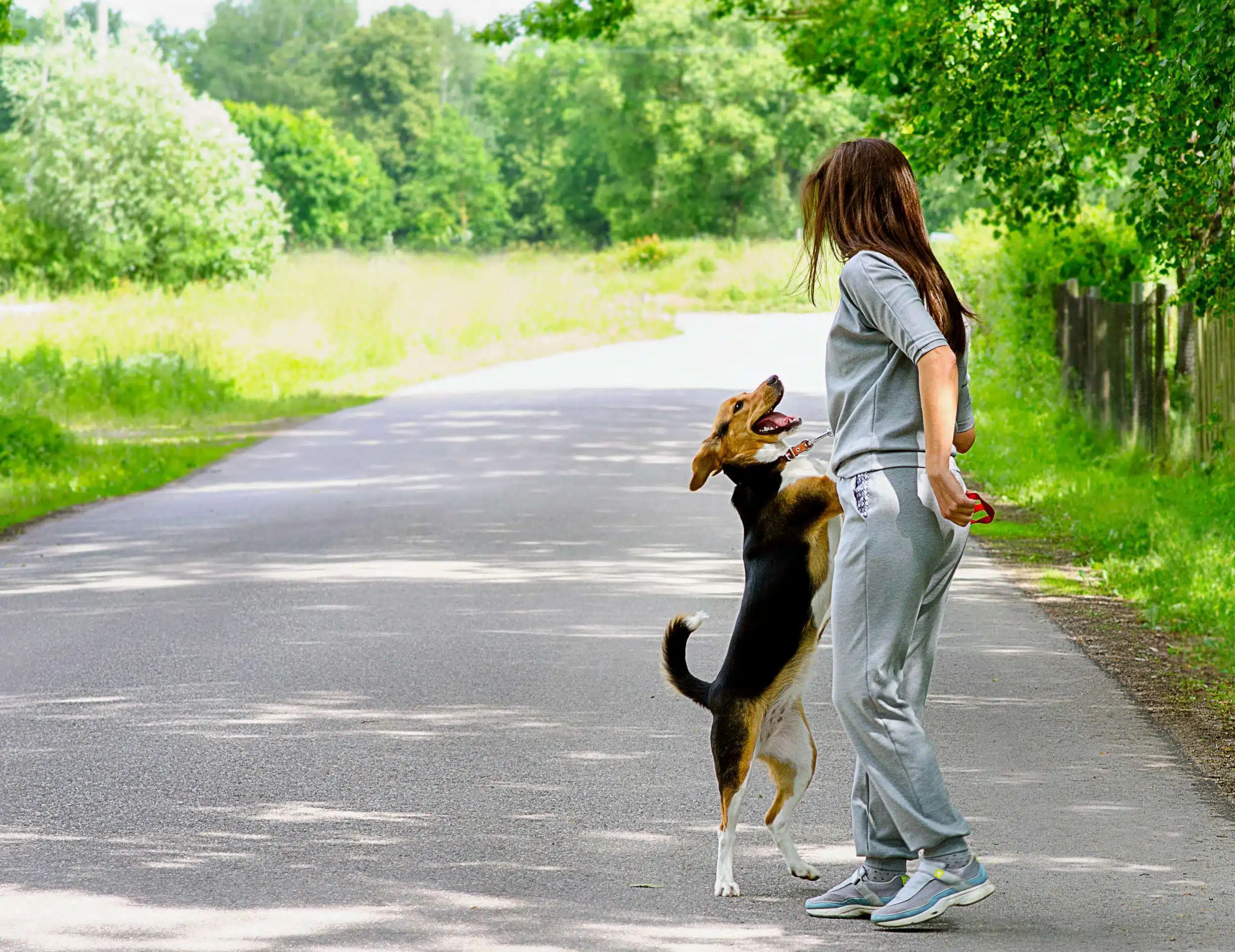

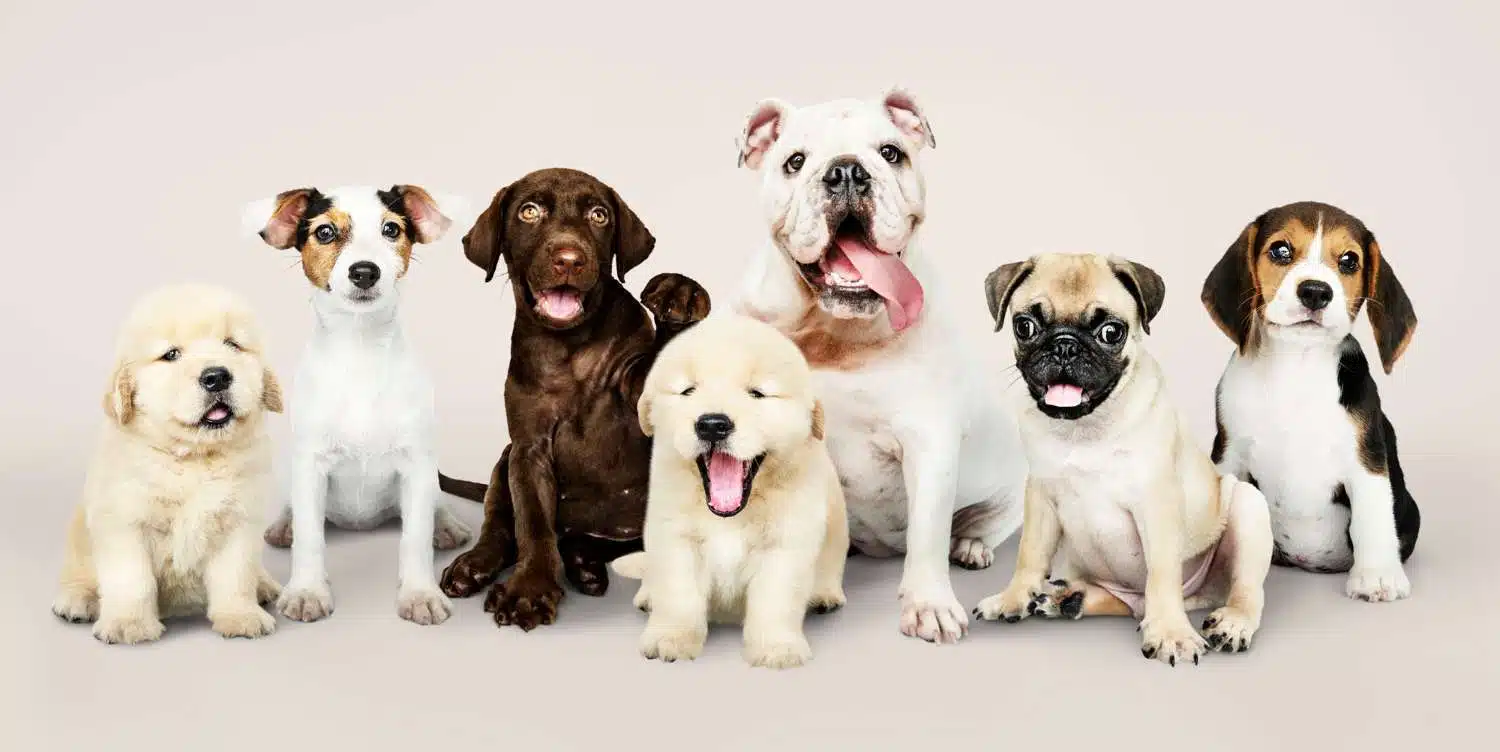

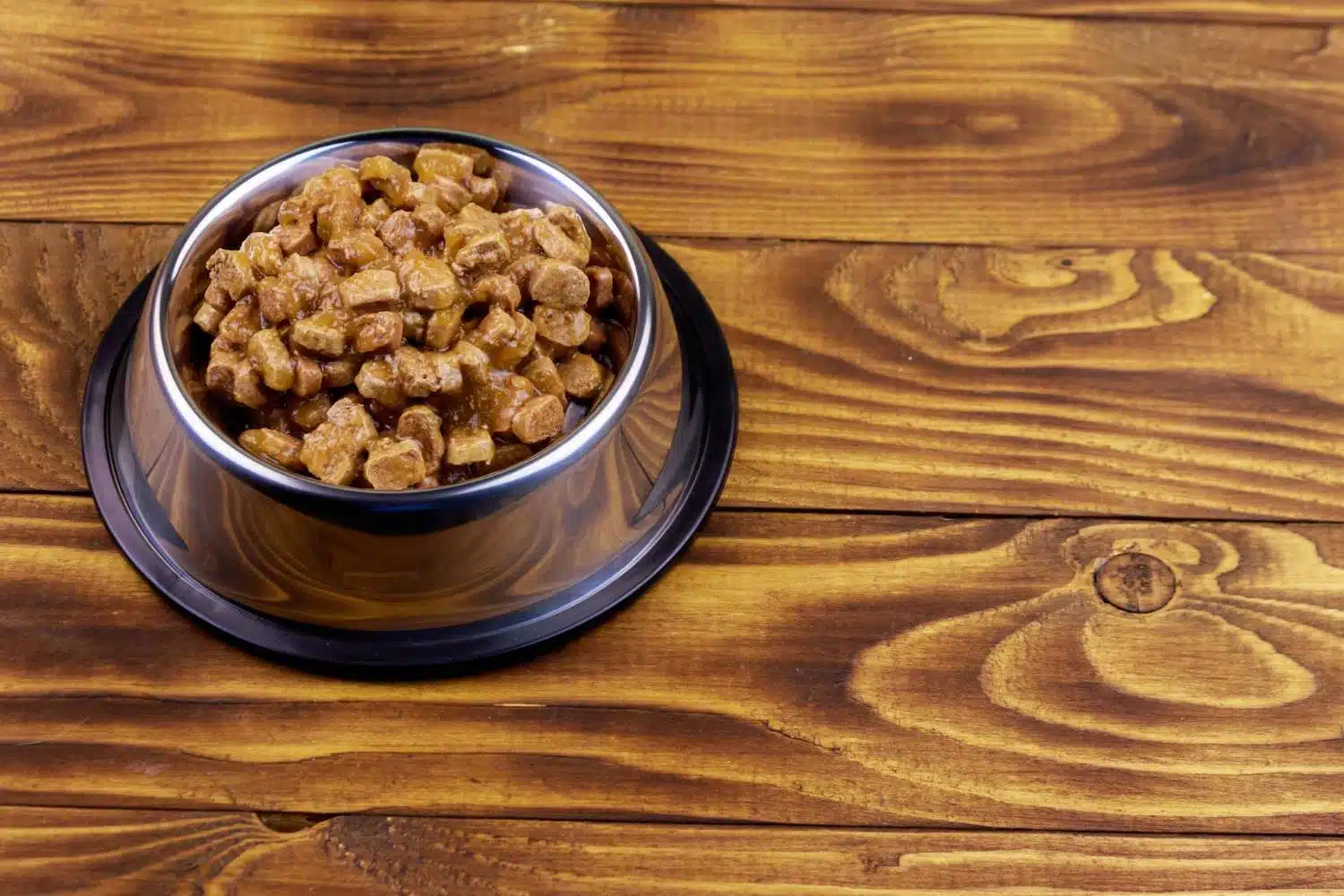

Get involved!
Comments